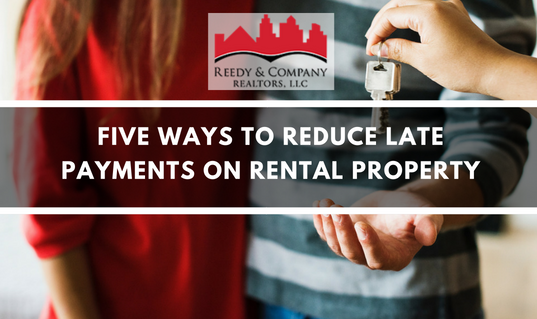Late payments are a hassle, and while they are not always avoidable, especially with larger properties, reducing them can help improve cash flow and reduce tenant turnover. Late payments can even result in your own bills not being paid. Here are five ways to either reduce late payments or mitigate the issues they can cause.
- Adjust the due date of your mortgage. If you are renting a house and count on the rent being in the bank when the mortgage bill comes in, then implement a policy that moves your payment due date to best align with your rent payment due date — many lenders are agreeable to this.
- Create a payment reminder system. The system could remind residents in the days before their rent is due and on the day of. Be flexible on how reminders are received. Texts or calls may be noticed more than emails, but may not work for some tenants. Some people are less willing to hand over a cell number than their email due to their phone plan but many will prefer it. We recommend identifying your tenant’s preferences at the onset of their lease and to navigate accordingly. Phone calls are probably best reserved for post due reminders. Accepting payment online can help, and some systems even contain an integral reminder system so you do not have to worry about it.
- Focus on your late payers. If you have a habitual late payer, then reach out to them. Try not to go straight into threatening them with collections, but rather find out what the problem is. In some cases, they may be paying late because their boss pays them late in the month, and may benefit from a different payment schedule where they need some leeway to get 1 payment ahead. Others may have genuine issues paying the rent, and you may have to decide whether to find a way to help them out or move towards eviction. On a related note, add late fees to the lease if they are not in there already, and start consistently applying them. Make sure to document all communication about late fees, payment plans, and others. Improving your resident screening can help avoid the late payers showing up in the first place. Make sure to get proof of employment or other income from new tenants and set fair guidelines on minimum income (A good rule of thumb is that your tenant’s rent should not exceed 25 to 30 percent of their income).
- Accept online/electronic payments. The very best way to prevent people from paying late is to have their rent transferred automatically, although not everyone is set up that way and some may prefer to continue to write a check for a variety of reasons. Make sure that automatic payments, if set up, include any utilities and extra payments to limit the transaction costs to you and your tenant.
- Hire a property manager. If the idea of chasing your late payments or setting up automatic systems in an encumbrance to the enjoyment of having an investment portfolio, and especially if you have a lot of other things on your plate or live out of the immediate area, then consider partnering with an experienced property manager. A property manager like Reedy and Company can help you set up software to accept online payments and send out reminders and have vast experience in screening tenants to avoid habitual late payers.
If you are renting out a second home, investment property, or even thinking of investing in larger buildings, then you need an experienced property manager to help you out with late payments and all of the other hassles that come with renting out your property. If you are in the Memphis, TN area, then contact Reedy and Company. today to find out how they can help you properly manage your investment property.
Reedy and Company manages rental properties, commercial, single-family and multi-family, owned by local and foreign investors, and offer more services to property investors than most in the industry; everything from in-house maintenance, leasing and collections to sales and acquisitions. When a client chooses Reedy and Company, they not only have a team of property managers working for them but a team of experts committed to balancing the needs of the tenants with the interests of the owner. For more information about the company, and the services offered, visit them online.



